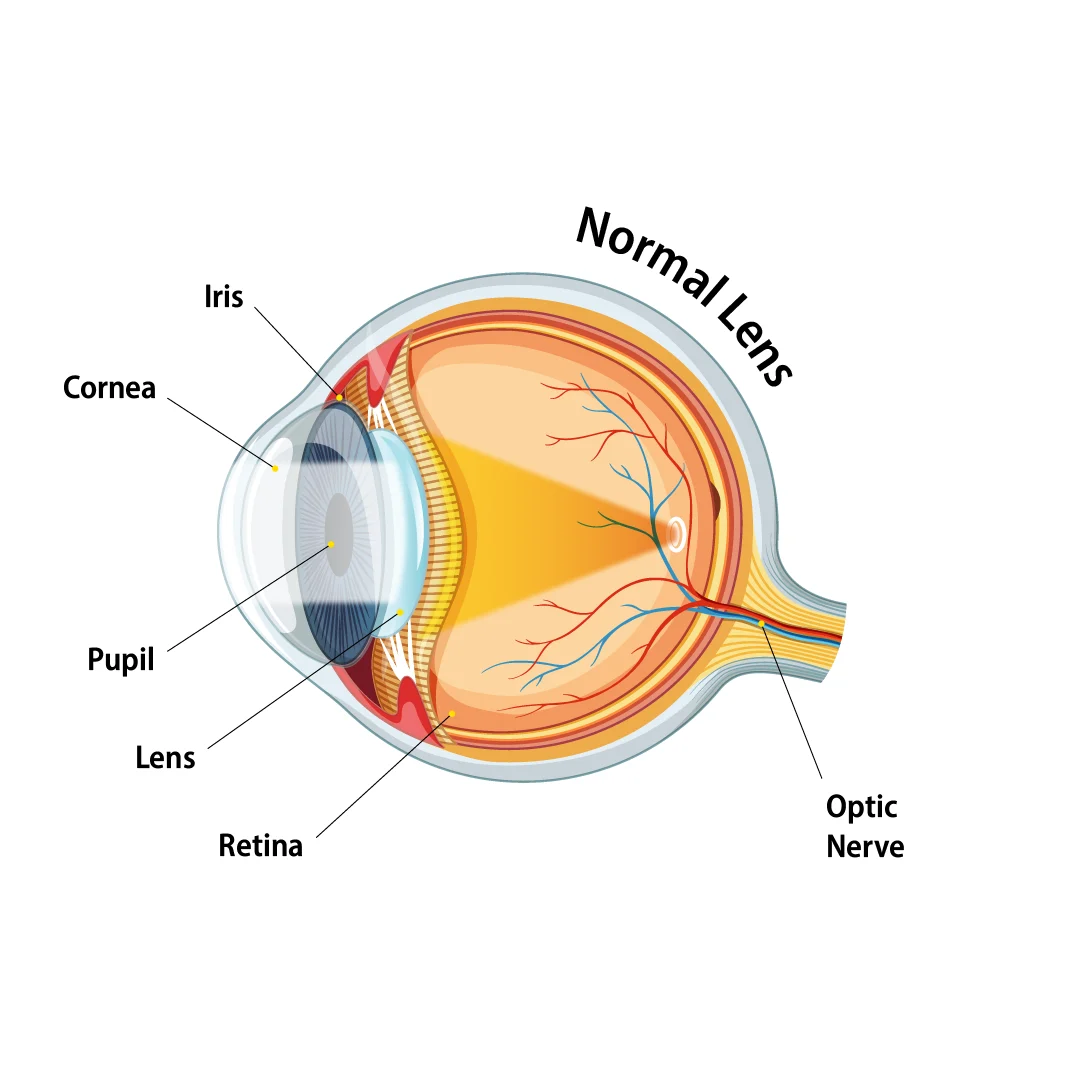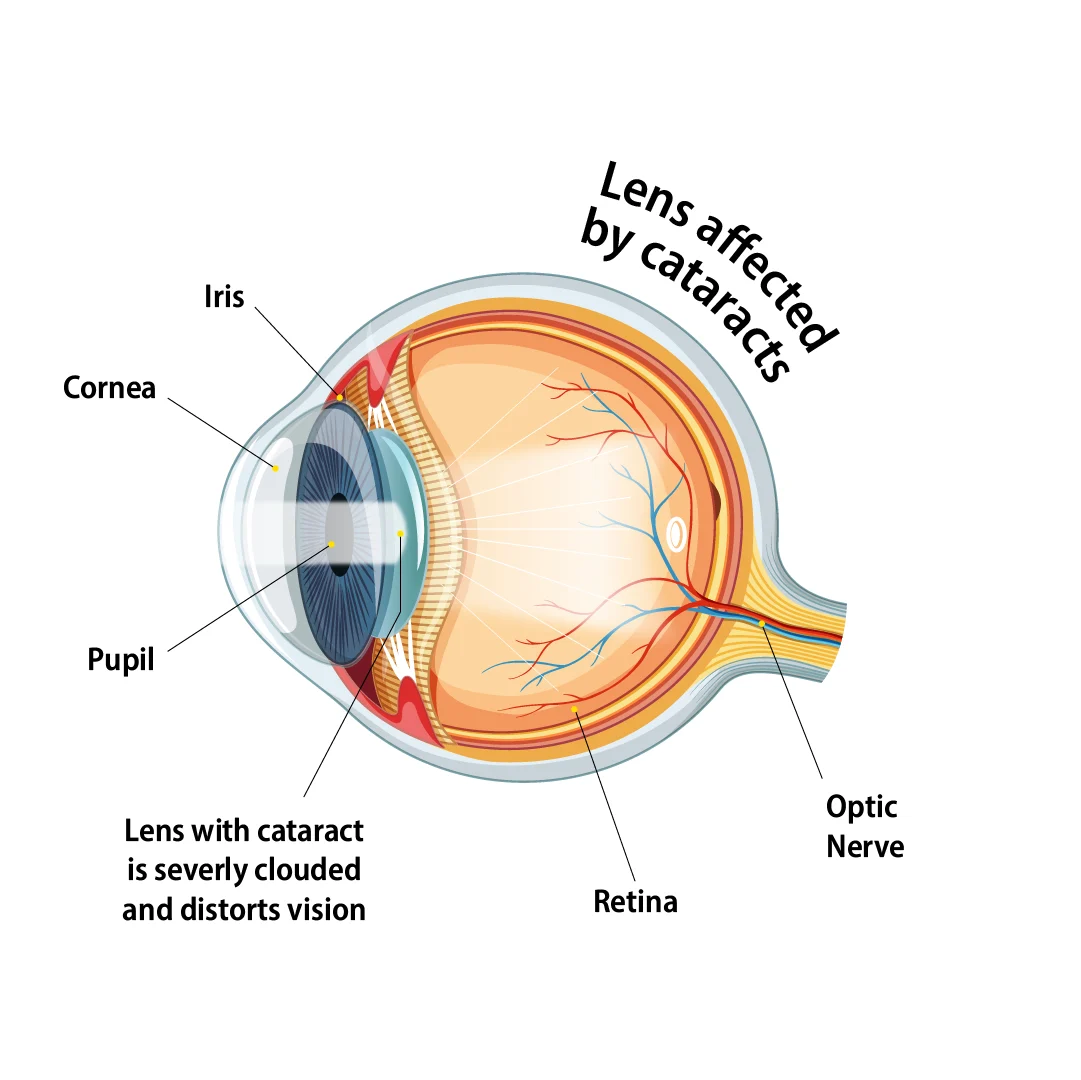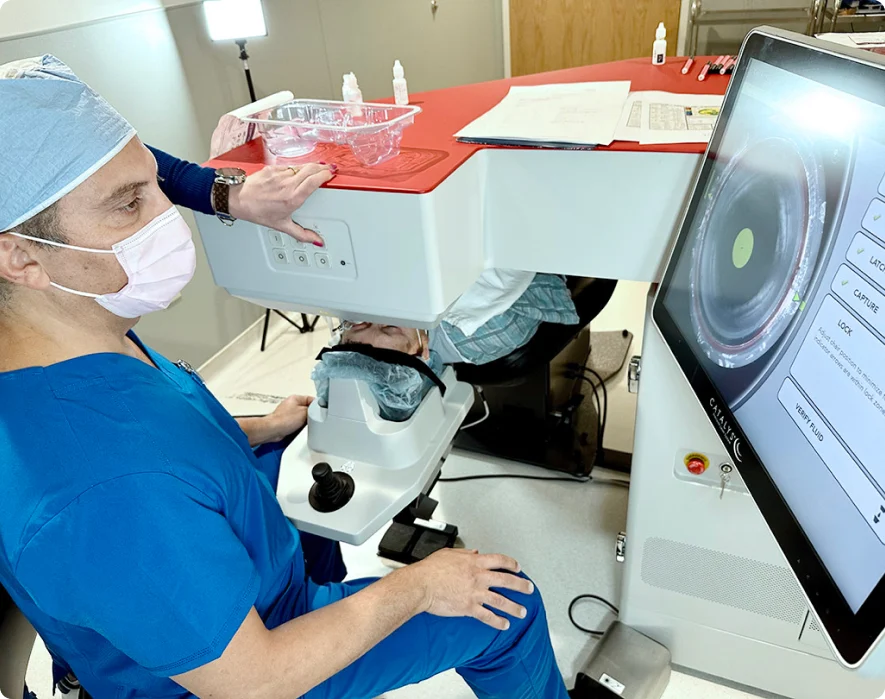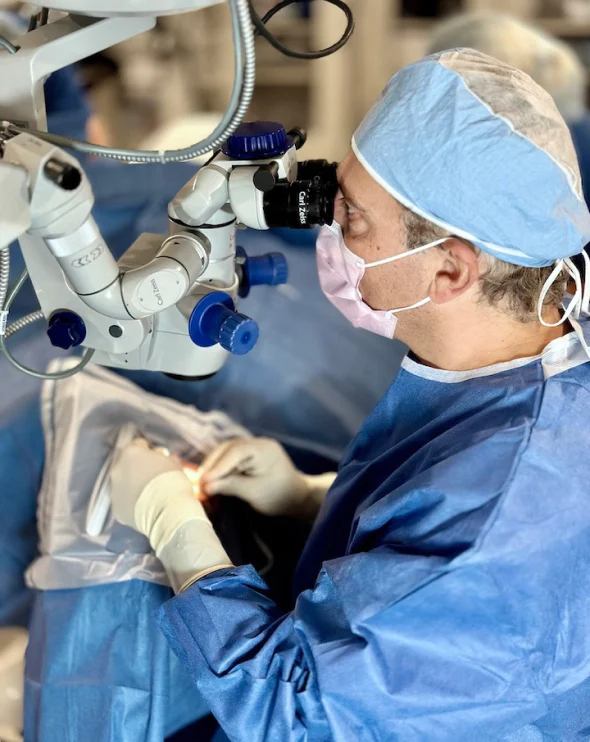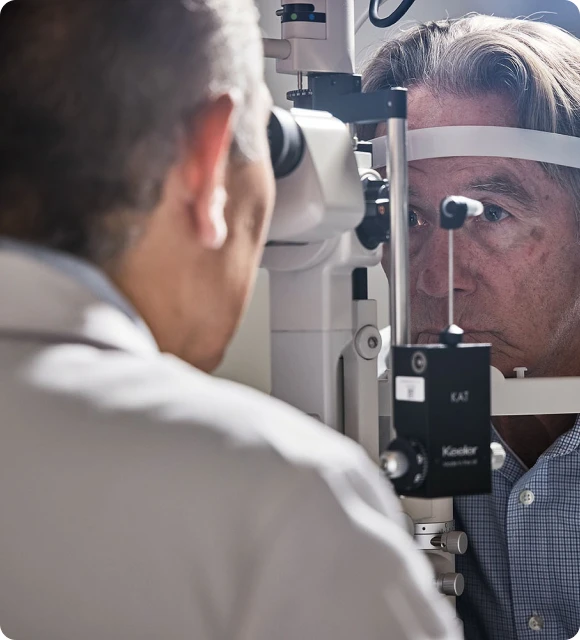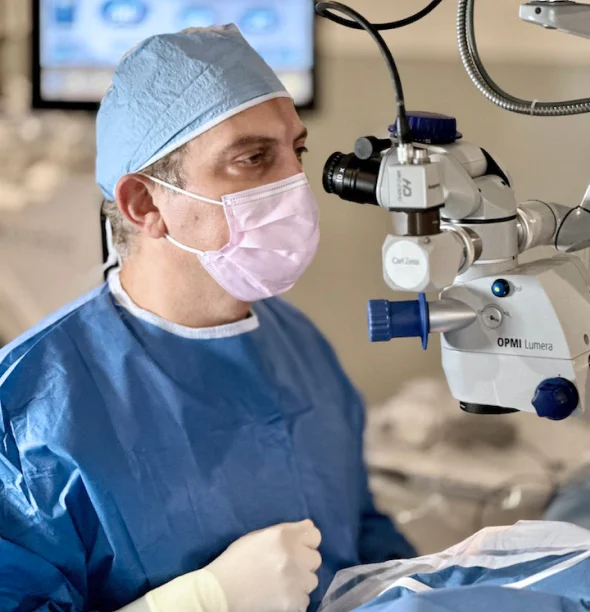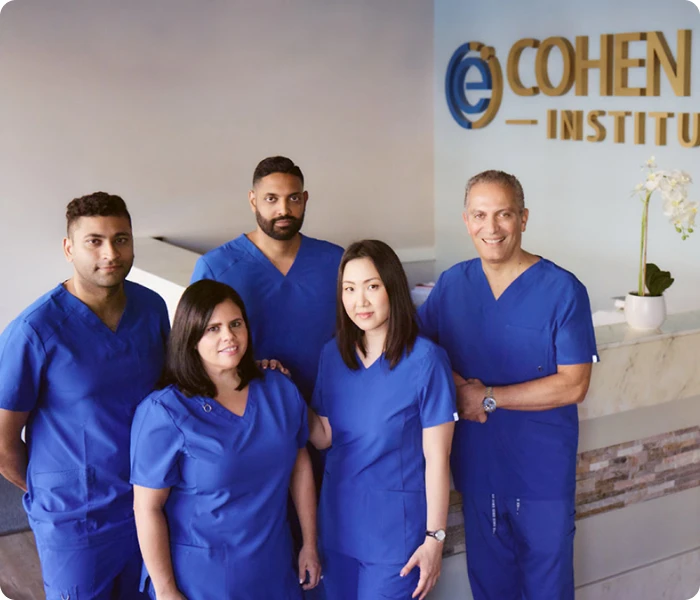
What are the Sympotms of Cataracts?
Cataracts can cause blurry vision, glare, reduction in the sharpness of colors and images, and double vision. They can cause your glasses prescription to fluctuate rapidly. The only solution is cataract surgery.
Cataract surgery means the removal of your natural lens and exchanging it with a lens implant. What most people don’t know is that cataract surgery is a once-in-a-lifetime opportunity to fix your vision for good. It is an opportunity not only for fixing your vision but also for potentially restoring youthful vision.


